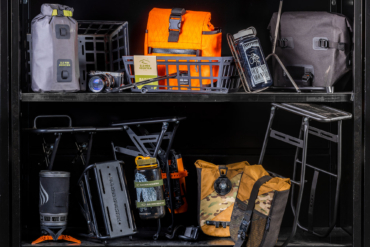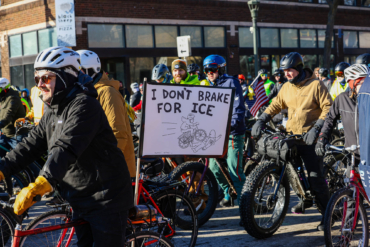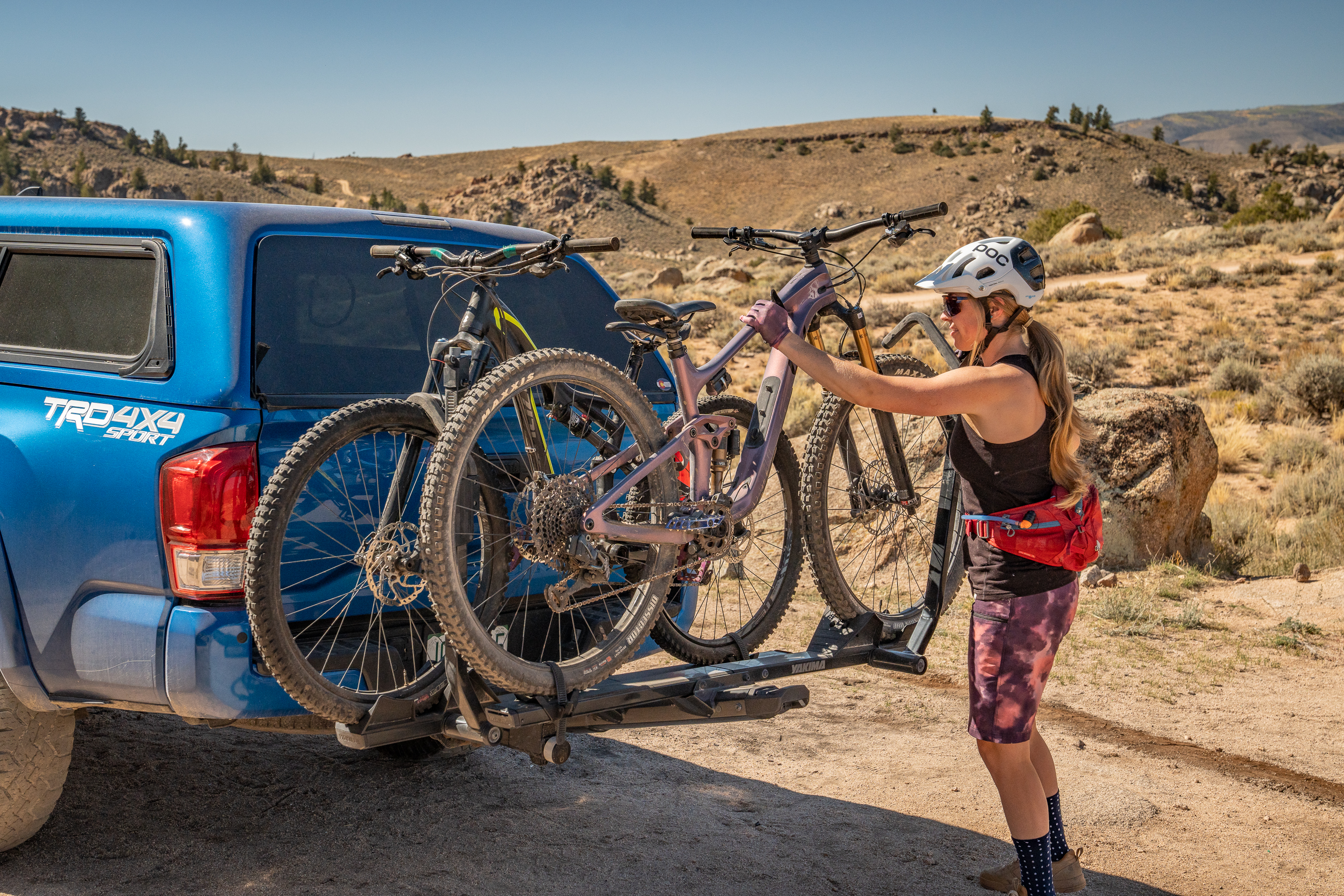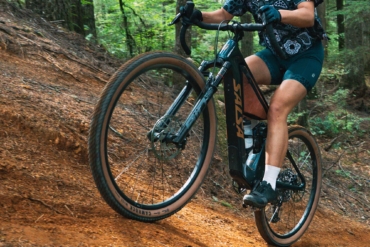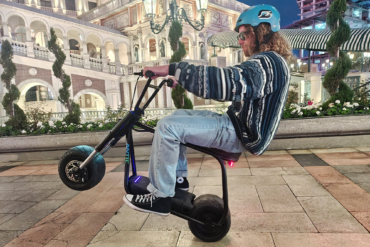
Preface: We first met John Wordin last summer, when our contributing editor T.C. Worley was in Utah to cover a bike-industry event. The result of that meeting was an article, “Bicycling as Therapy,” and a call for more from readers on the non-profit Ride 2 Recovery group. This month, as a part of our Epic Award program, we’re recognizing Ride 2 Recovery and the group’s founder, John Wordin, who has built the organization over six years. Congrats to Wordin on a job well done! We hope to see you again spinning out there on the open road.
By STEPHEN REGENOLD
“Life doesn’t stop at the point of your injury.” That powerful quote comes from Delvin McMillian, an Air Force veteran who became so ill during his service that his survival depended on the amputation of his legs and arms.
Today, with the help of a California nonprofit, McMillian rides a bike. He’s not letting bad fortune slow him down. The custom ride, assembled by Ride 2 Recovery over a six-week period this year, is a first of its kind.

McMillian’s bike, called the “Stealth Mad Max,” is a hallmark among hundreds of custom bike builds Ride 2 Recovery has made for wounded vets.
But though the mechanicals of the quad-amputee bike were a particular challenge, the goal was the same: To get a hurt soldier outside and pedaling on two wheels.
“Bikes are a great equalizer,” said John Wordin, who founded Ride 2 Recovery in 2007. There is no other activity, Wordin said, that allows vets with a range of physical and metal injuries to participate together.
Wordin has worked countless hours to get men and women like Delvin McMillian on bikes. He runs a staff to organize events and multi-day rides for wounded vets.

Wordin, his staff, and many dozens of volunteers associated with Ride 2 Recovery, in short, have influenced a lot of lives.
To that point, said McMillian in a recent profile for Ride 2 Recovery, “There is more to life than feeling sorry for yourself; you still have a lot you can offer the world.”
Wordin said he’s seen soldiers that are in “very dark places” make a 180-degree life change. He described a Fort Benning, Ga., soldier who was depressed and mad after an injury. Ride 2 Recovery got him a bike.
The organization then hosted the soldier on its Bluegrass Challenge Ride, which for six days took a route between Cincinnati and Nashville, Tenn. Wordin said those six days jolted the vet back to life.
“He’s changed, he’s hardly even got off his bike since that ride,” Wordin noted.

The soldier has lost more than 30 pounds since he started riding again this year. The freedom, discipline, and pure physical activity of riding has changed him.
Like many Ride 2 Recovery vets Wordin mentioned, the Fort Benning soldier is on his way to putting his life back together post-injury, and it was a bike that started him down that track.
Since its founding five years ago, Ride 2 Recovery has delivered more than 1,000 bikes to vets in need across the United States. Partnering with Raleigh Bikes and other sponsors, the organization donates stock bikes to soldiers who do not need adaptive builds.
About 10 percent of the bikes need customization, be it for an amputee or for a vet with another life-changing physical injury.

Last year, Ride 2 Recovery raised about $4 million to support the program. It organized more than 30 events, from daylong “Honor Rides” to multiday challenges that include hundreds of miles of distance and a team goal to ride together the whole way.
Wordin, age 49, is based in Calabasas, Calif. He has a background more in the bike world than the military, though he did participate in an officer candidate school in college.
In his teens and twenties he raced bikes. Then, beginning in the early 1990s, Wordin managed a professional squad, the Mercury Cycling Team.

He was contacted by the Veterans Administration in 2007, which was in search of new rehabilitation programs for injured vets. Wordin submitted the original concept for Ride 2 Recovery, and by 2008 the new nonprofit organization was literally rolling.
With the foundation work laid, Ride 2 Recovery hopes to branch out in the coming year, with a main focus on its “Project Hero” program. This program includes indoor spinning classes and outdoor cycling group rides at military hospitals, warrior transition units, and VA locations around the U.S.
A goal of Project Hero is to “enhance, inspire, and challenge” wounded warriors in need. Wordin is bullish, hoping to expand quickly from about 40 current participating locations that run cycling programs to more than 250. “It’s a formula that works, and we want to see it grow.”
—For more information on Ride 2 Recovery go to the organization’s main page. See our Epic Award channel for past winners and a chance to nominate someone “epic” in your sphere.


